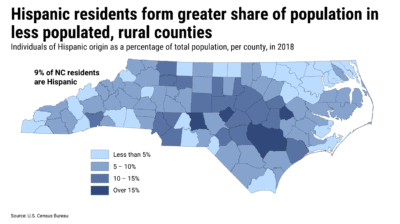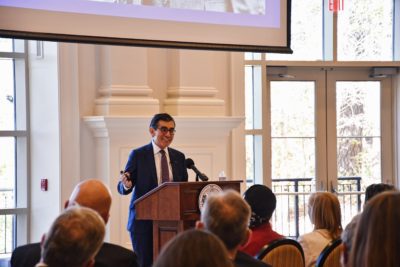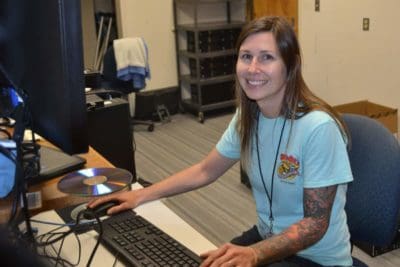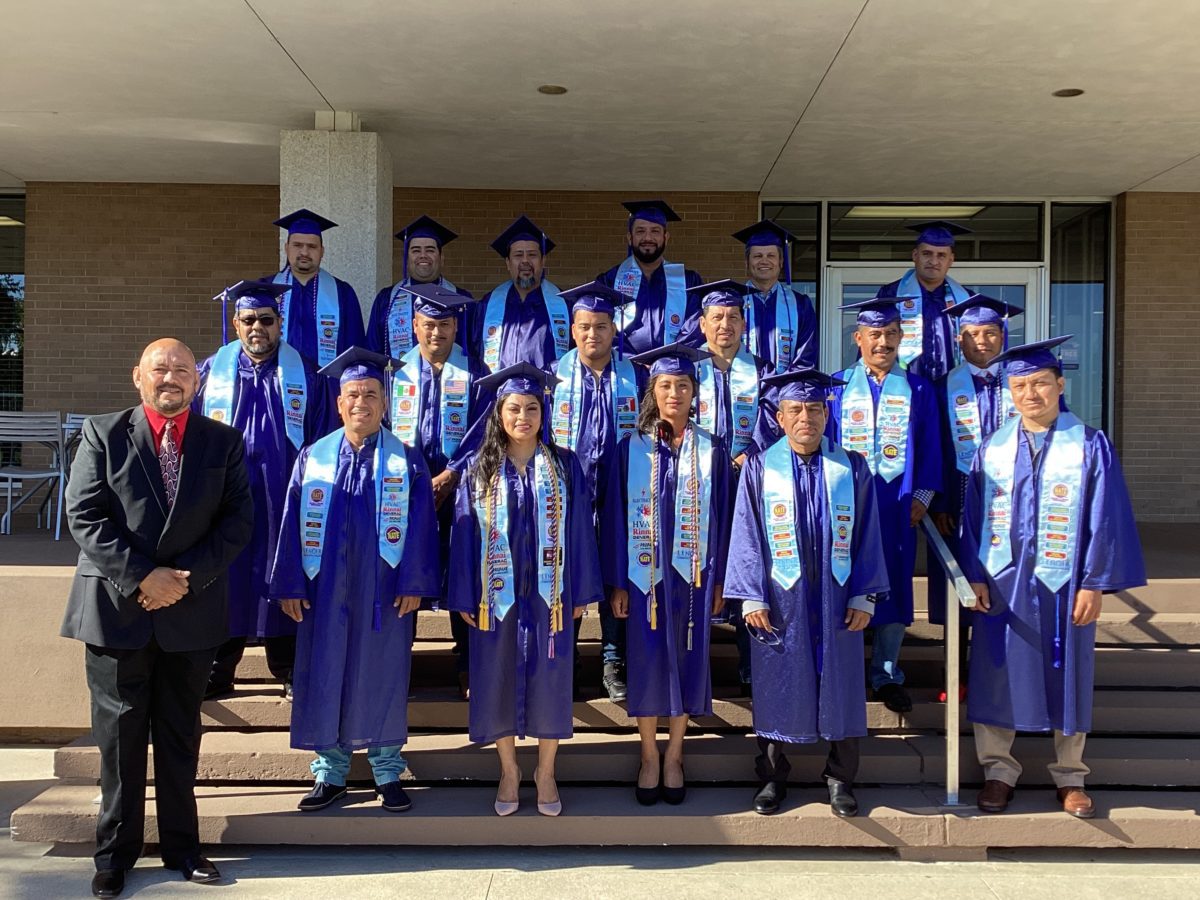

Share this story
- "This has changed the face of LCC," said the center's director. "Now we've got signs in Spanish, we have about 11 people in our division who are bilingual – that helps us communicate with a large number of individuals in our classes."
- At Lenoir Community College, 14% of the student population is Hispanic, according to 2021-22 data. The Centro Educativo Latino offers around 70 Spanish-language workforce courses, including HVAC, welding, and auto mechanics.
|
|
In the nearly 10 years that Lenoir Community College’s Centro Educativo Latino has existed, the center has grown to offer around 70 Spanish-language workforce courses.
The education center has served more than 2,000 Hispanic students over the last two years, said Carlos Cotto, director of Centro Educativo Latino. Cotto is also Lenoir’s associate dean of workforce development and Latino programs.
“For the longest time, the Latino never had a place to go for higher education,” Cotto said. The center has “opened doors into the socio-economic cycle they have been living in, but did not feel accepted in,” he said in a college release.
Many colleges offer English as a Second Language (ESL) classes, Cotto said, or perhaps a basic computer skills course in Spanish. Often times, he added, such classes are offered at an off-campus site or trailer.
“It’s not like they have been welcomed to a facility where they’re walking on campus and they’re welcome 100%,” he said. “As the Lenoir President [Dr. Rusty Hunt] said, this has changed the face of LCC. Now we’ve got signs in Spanish, we have about 11 people in our division who are bilingual – that helps us communicate with a large number of individuals in our classes.”
At LCC, 14% of the student population is Hispanic, according to 2021-22 headcount data. That’s more than the county’s overall population, which is 8.5% Hispanic, according to the U.S. Census Bureau. Nearly 8% of Lenoir County residents speak a language other than English at home, according to the same data.
Centro Educativo Latino serves students from 29 other North Carolina counties, according to Cotto, along with a few out-of-state students. The scale of the center’s offerings contributes greatly to its appeal, he said, along with the flexibility of its programs.
Classes offered at the center include HVAC, commercial refrigeration, welding, auto mechanics, energy distribution systems, and residential electricity, among many others. The center also offers classes for cosmetology, nail technicians, esthetics, and natural hair care. Students interested in learning English can take ESL, Cotto said.
The center also offers weekend and evening class times to increase accessibility for people working full time or students who are parents. Importantly, the center doesn’t just increase accessibility for Hispanic people, Cotto said. By providing Spanish-language credentials, the center also increases accessibility for Spanish residents across the state who need various trade services.
“It’s quite an operation, but it’s been very beneficial. It’s not something that just benefits an isolated population. It has changed the face of services that are available.”
— Dr. John Paul Black, vice president of instruction and institutional effectiveness
‘It’s been inspirational’
When Cotto arrived at LCC in 2010, he had a dream: to help more Latinos feel welcomed at the college so they could in turn access more economic opportunities in the state.
By 2013, the center – though smaller than it is today – was “running smoothly,” Cotto said.
Last year, the college used federal COVID-19 relief funds to decrease costs for workforce students, including those in Centro Educativo Latino.
Recently, the center also worked out an informal understanding with a nearby hotel for students traveling for weekend courses. Under that rate, instead of paying about $88/night, students pay $45 per room with breakfast included. With four people to a room, Cotto said, most students end up paying about $11 a night.
“We try to make it as affordable to the student as possible,” he said.
Nearly 56% of LCC’s students are exclusively enrolled in workforce continuing education courses. Many more Hispanic students enroll in workforce courses than other academic programs, Cotto said – a trend he credits in part to the resources provided by the center.
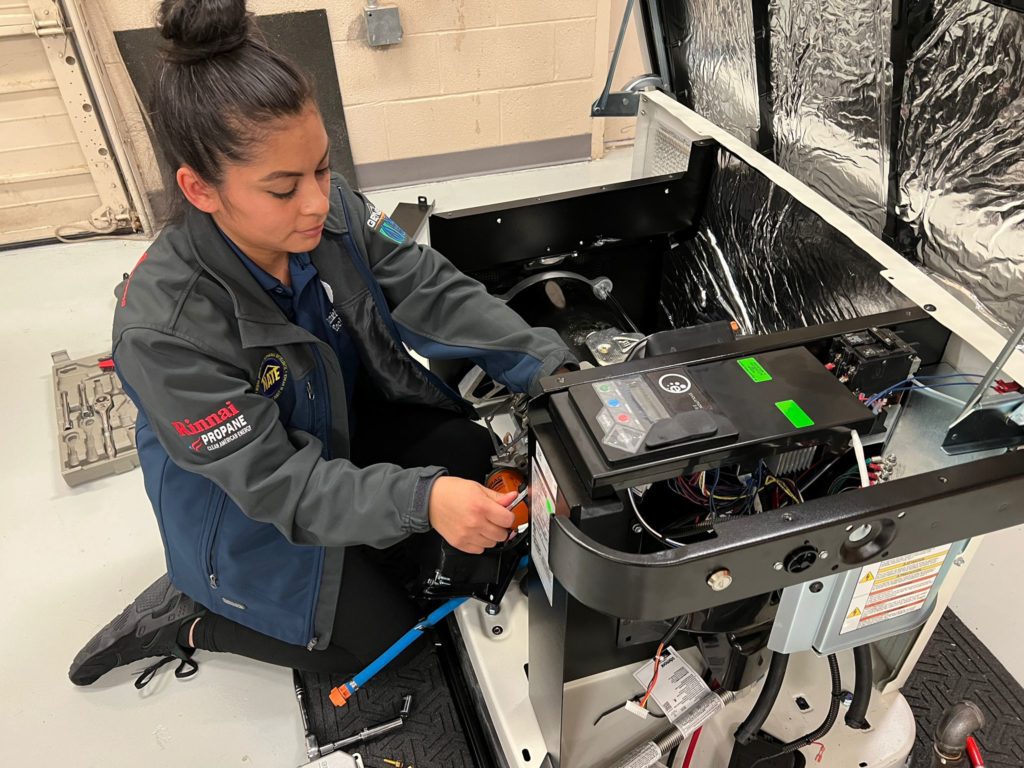

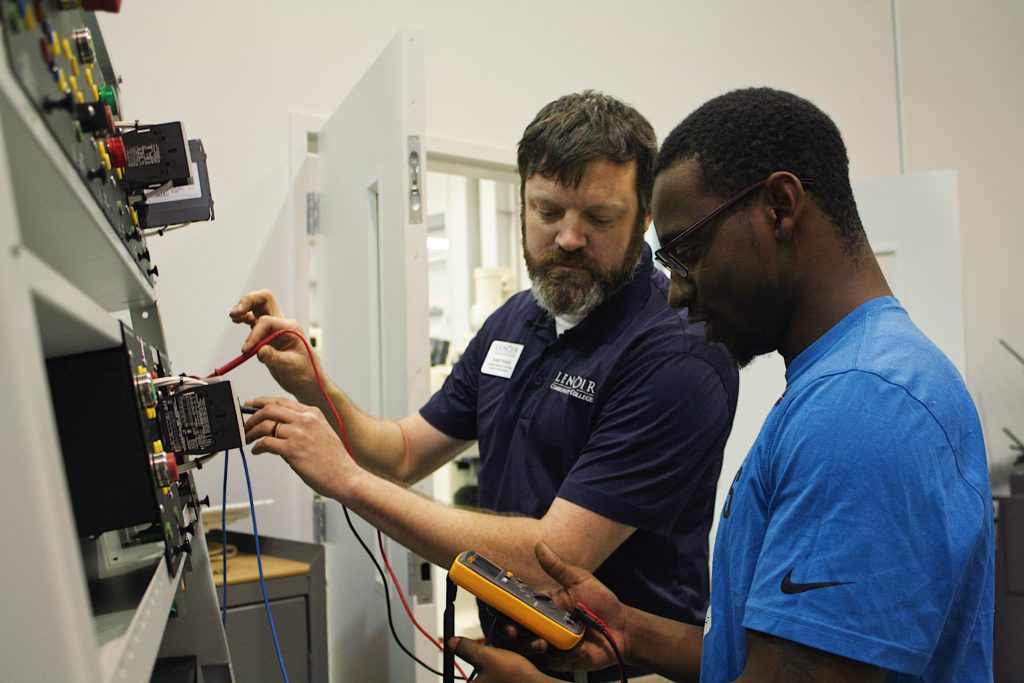

For students who complete the industry and trades program at LCC specifically, lifetime earnings increase by nearly $300,000, according to a recent economic impact report. And one out of every 24 jobs in LCC’s service area are supported by the college, with students gaining $3.90 on average for every dollar invested in their education.
In addition to its targeted resources for Hispanic students, LCC has also worked to expand offerings for adult learners.
In November 2021, the college joined N.C. Reconnect – an initiative aimed at enrolling and credentialing adult learners at the state’s 58 community colleges. LCC also recently implemented a curriculum for adult learners on servicing propane appliances.
In the future, the college aims to also better serve its Black students, LCC’s Dr. Black said, while keeping the success of the Centro Educativo Latino in mind. Thirty-eight percent of LCC students are Black, according to 2021-22 data, compared to about 42% of the county overall.
And as the college embraces future opportunities – including expanding aviation and aerospace industries – for its community, Black said LCC leadership is constantly thinking about how to ensure all students can access such opportunities.
Expanding equitably, Black said, is important. And Centro Educativo Latino is evidence that such growth is possible, he said.
“You see the human spirit in someone who would work the whole week and organize their life to then come and learn on the weekend to further advance,” Black said. “So we try to mitigate any barriers that we can. It’s been inspirational.”



